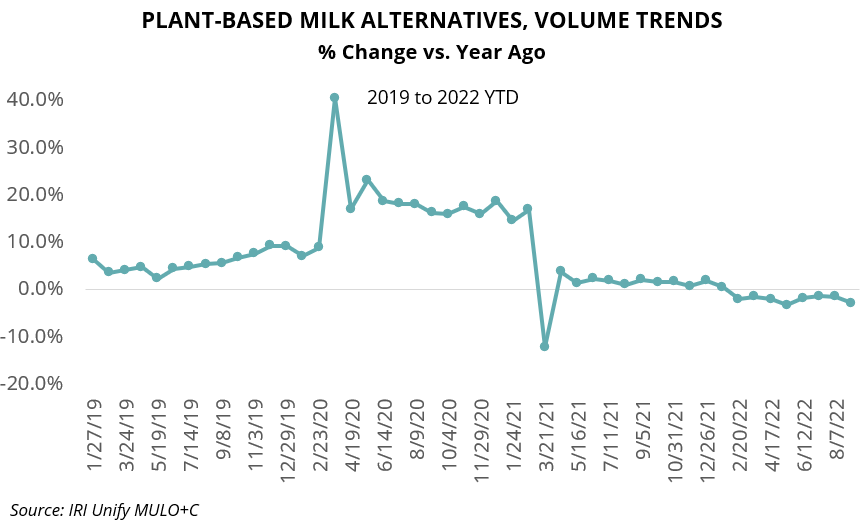 By Alan Bjerga, Senior Vice President, Communications, National Milk Producers Federation
By Alan Bjerga, Senior Vice President, Communications, National Milk Producers Federation FDA’s split-decision draft guidance on plant-based beverage labeling offered last month gave everyone something to be mad about. For dairy producers and consumers, the fact the agency would allow plant-based beverages to call themselves “milk” is unacceptable. For plant-based beverage manufacturers, guidance that they should disclose their nutritional inferiorities prominently on the packaging makes using a dairy term much less attractive. And even though the guidance is voluntary — and thus in theory could be ignored — companies that want to stay on FDA’s good side and avoid being called out on their noncompliance by dairy’s defenders have the incentive to either follow the guidance or sidestep the issue completely by avoiding dairy terms altogether. Either way, consumers win.That makes dairy the net winner in the decision, however incomplete it may be. Crucially, FDA is accepting the National Milk Producers Federation’s core argument — that ample consumer research shows that consumers are confused over the nutritional content of plant-based beverages and the need for labeling. And that provides a great opportunity for dairy and consumers to make progress in achieving the logical outcome of that acceptance — ending altogether the mislabeling of plant-based beverages that’s plagued the U.S. market for more than four decades.
It’s much easier to win a debate when the premise of the debate is set on your own terms. Decades of calling on the FDA to enforce its own standard of identity for milk mostly fell on deaf ears. Even if dairy’s argument was clearly correct, FDA could choose to do nothing about it, and doing nothing was a task in which FDA excelled.
As plant-based beverages proliferated and it became clear that stolen dairy terms encouraged consumers to assume an incorrect nutritional profile for these products, nutritional confusion among consumers has become a public health issue the agency simply can’t ignore. And to its credit, FDA’s guidance, for all its flaws, is an attempt to seriously address a problem it began to acknowledge only in the past half-decade.
But now that the agency has acknowledged the problems and offered guidance, it will be critical to keep up the pressure to follow this progress to a successful conclusion. Consumers, dairy producers, and their allies need to make sure FDA’s approach isn’t weakened, and then to make sure that now that our analysis of the problem has been accepted, the logical solution of that analysis – limiting dairy terms only to dairy products – is the eventual outcome.
On the first point, FDA has opened its guidance up for public comment. NMPF has set up its own simple guide on how to submit a comment. Through this form, members of the public can either personalize their own message to FDA or have access to resources that will help them write their own comments from scratch.
On the second point, we are advocating for congressional passage of the DAIRY PRIDE Act, which has been introduced in the U.S. Senate and House of Representatives. The legislation would require FDA to enforce its standard of identity for milk, solving the problem at its root.
The fight for labeling integrity has taken patience and persistence. But progress is real, and with momentum on our side, we can make a real difference in the marketplace for public health. Please consider joining us in this effort.
This column originally appeared in Hoard’s Dairyman Intel on March 20, 2023.

 By Clay Detlefsen, Senior Vice President for Environmental and Regulatory Affairs, NMPF.
By Clay Detlefsen, Senior Vice President for Environmental and Regulatory Affairs, NMPF.




